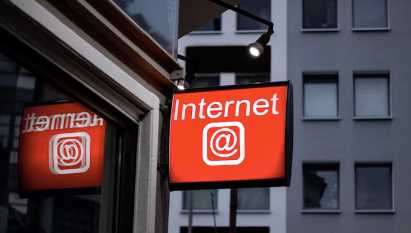We all agree that mobile technology played a major role in the development of the world as we know it today. But the untold fact is that the Internet revolution is what made smartphones possible. The outcome of this revolution is us.
How One Year Online Has Changed Us
Imagine a home where everyone used the internet exclusively throughout the day, starting their day by logging on. Zoom or FaceTime for four hours. I spent three hours online. Facebook, Instagram, and Twitter were perused for three hours. gaming for three hours. Netflix in HD for four hours.
Think about if they did this each day of the month. It is incomprehensible that so many people spend so much time in front of screens, yet in America, this has become the new normal. The average monthly household data use in 2020 soared by 40% compared to the previous year, according to OpenVault, a global provider of broadband industry analytics, as work, education, and social activities moved online once COVID-19 became a global pandemic in March.
This figure covers data from tablets, computers, gaming consoles, and mobile phones that access the internet through a home's broadband connection, but it does not account for cellular data usage. Nearly half a terabyte of data is being used monthly by the typical home. It's not entirely clear what takes place in these homes when they use the internet.
By popular categories, the hypothetical data consumption breakdown that OpenVault presented to Mashable accounted for 483 GB of data:social media, gaming, streaming, video conferencing, and browsing. It's alluring to picture a dystopian household where families have disintegrated into one another so that members can spend nearly 20 hours a day watching television in a soulless manner. We have been trained to fear this technological fate, after all.Naturally, reality is not a nightmare but rather a paradox.
The pandemic has shown that the internet is a vital resource that may provide protection, connection, information, and more for people who can claim the right to move their life online in order to survive a pandemic. This change increased access to vital resources like telemental health and grocery delivery for people who are members of marginalised communities, such as rural dwellers, persons with disabilities, and people of colour.
What would life be like without the Internet?
Can you envision your life without the Internet? is a good place to start. Just take a moment to close your eyes and imagine life before the internet. If you were born and raised before the Internet, you probably have very little memory of that time. This is an impossible endeavour if you were born into the digital age.
Millennials, commonly known as 'digital customers,' will never live in a world without mobile devices or connectivity. However, for those of us living in industrialised nations, it is difficult to envision a time before Google, Amazon, Apple, or Facebook. Yes, there are still (small) portions of our earth that are not wired and cabled.
Numerous experiments or studies of living without the Internet can be found if you search on Google (where else?). All of these boil down to this one undisputed fact: 'Without the Internet or a smartphone, I could not even begin to imagine my life. It is an essential component of who I am.' (Gallup). Even though the Internet is still relatively new—it just celebrated its 32nd birthday in 2021—the connectedness has already had long-lasting repercussions. All it took was one wire hooked into the phone line to give us access to the entire world in the palm of our hands.
There was a specific moment in time when everything changed for the better, and that was when the Internet left our house and entered a tiny box called a smartphone. According to Joseph Johnson's 'Worldwide digital population as of January 2021,' there are now 4.66 billion people who are online. To put it another way, about 59.5% of people on the planet are currently online, at home, or using a mobile device.
Our daily activities are all influenced by a connected existence: Every day, more than 50 million pieces of material are shared on Facebook, more than 500 million Tweets are written, more than 50 billion pieces of content are shared on Facebook every month, and more than 15 billion products have been purchased on Amazon in 2021, with 40% of those purchases coming from third-party merchants. What holds true for individuals also holds true for organisations.
The best practices that were taken for granted just a decade ago have no relation to how you do business now. All certainty abruptly vanished, carried away by a stream of connectedness. For those able to adapt quickly and seize the opportunities presented by the Internet, it has provided both benefits and enormous prospects.




Leave Comment